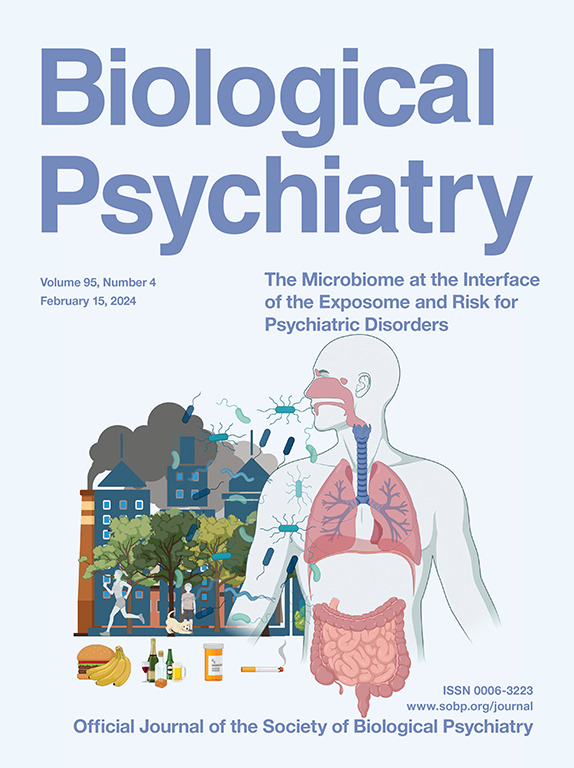Cytokines as neuromodulators: insights from experimental studies in humans and non-human primates
IF 9.6
1区 医学
Q1 NEUROSCIENCES
引用次数: 0
Abstract
Beyond their role in immune signalling, cytokines have emerged as key neuromodulators influencing processes including neurotransmitter function, neuronal excitability, synaptic plasticity, neurogenesis, myelination, and cortical sleep-state. These roles are observed in both the healthy brain and during infections when they reorient motivational, cognitive, and emotional responses. Experimental evidence from human and non-human primate immune challenge studies has been pivotal to understanding these effects. By showing that elevated cytokines readily induce transdiagnostic symptoms, including anhedonia, social withdrawal, psychomotor slowing, and cognitive impairment, they have also helped demonstrate that inflammation contributes to the shared neural dysfunction observed across psychiatric and neurological disorders. Cytokines modulate glutamatergic and GABAergic neurotransmission, impair dopaminergic and serotonergic signalling, and regulate homeostatic synaptic scaling, leading to altered network connectivity and behavioural deficits. While research has often focused on single cytokines in isolation, neuroimmune signalling occurs through combinatorial cytokine codes, requiring systems-level approaches to understand their interactive effects. Advances in neuroimaging, molecular neuroscience, and biophysical modelling offer opportunities to link cellular cytokine action with macroscale network dysfunction, enabling mechanistic insights into cytokine-mediated neuromodulation. Clinically, cytokine-targeting therapies hold promise for treating inflammation-driven cognitive and mood disorders, but their long-term impact on neuroplasticity remains uncertain. Future research should characterize immune signatures predictive of neuropsychiatric symptoms, identify cell-type-specific cytokine effects, and integrate multiscale modelling to refine understanding of neuroimmune interactions. Reconceptualising cytokines as fundamental regulators of neural function rather than merely inflammatory mediators is crucial for developing precision medicine to mitigate immune-driven brain dysfunction and improve mental health outcomes.细胞因子作为神经调节剂:来自人类和非人类灵长类动物实验研究的见解
除了它们在免疫信号传导中的作用,细胞因子已经成为影响神经递质功能、神经元兴奋性、突触可塑性、神经发生、髓鞘形成和皮层睡眠状态等过程的关键神经调节剂。在健康的大脑和感染期间,当它们重新定向动机、认知和情绪反应时,都可以观察到这些作用。来自人类和非人类灵长类动物免疫挑战研究的实验证据对于理解这些影响至关重要。通过表明升高的细胞因子容易诱发跨诊断症状,包括快感缺乏、社交退缩、精神运动减慢和认知障碍,他们还帮助证明了炎症有助于在精神和神经疾病中观察到的共同神经功能障碍。细胞因子调节谷氨酸能和氨基丁酸能神经传递,损害多巴胺能和血清素能信号,调节稳态突触缩放,导致网络连接改变和行为缺陷。虽然研究通常集中在孤立的单个细胞因子上,但神经免疫信号是通过组合细胞因子代码发生的,需要系统级的方法来理解它们的相互作用。神经影像学、分子神经科学和生物物理建模的进展为将细胞细胞因子作用与宏观网络功能障碍联系起来提供了机会,使细胞因子介导的神经调节机制得以深入研究。在临床上,细胞因子靶向疗法有望治疗炎症驱动的认知和情绪障碍,但它们对神经可塑性的长期影响仍不确定。未来的研究应该描述预测神经精神症状的免疫特征,识别细胞类型特异性细胞因子的作用,并整合多尺度模型来完善对神经免疫相互作用的理解。将细胞因子重新定义为神经功能的基本调节因子,而不仅仅是炎症介质,对于开发精准医学以减轻免疫驱动的脑功能障碍和改善精神健康结果至关重要。
本文章由计算机程序翻译,如有差异,请以英文原文为准。
求助全文
约1分钟内获得全文
求助全文
来源期刊

Biological Psychiatry
医学-精神病学
CiteScore
18.80
自引率
2.80%
发文量
1398
审稿时长
33 days
期刊介绍:
Biological Psychiatry is an official journal of the Society of Biological Psychiatry and was established in 1969. It is the first journal in the Biological Psychiatry family, which also includes Biological Psychiatry: Cognitive Neuroscience and Neuroimaging and Biological Psychiatry: Global Open Science. The Society's main goal is to promote excellence in scientific research and education in the fields related to the nature, causes, mechanisms, and treatments of disorders pertaining to thought, emotion, and behavior. To fulfill this mission, Biological Psychiatry publishes peer-reviewed, rapid-publication articles that present new findings from original basic, translational, and clinical mechanistic research, ultimately advancing our understanding of psychiatric disorders and their treatment. The journal also encourages the submission of reviews and commentaries on current research and topics of interest.
 求助内容:
求助内容: 应助结果提醒方式:
应助结果提醒方式:


